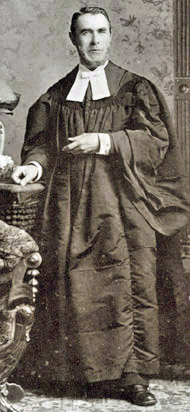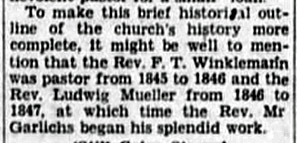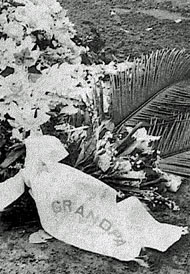Müller from Flörsheim am Main, Kriegsfeld and Zweibrücken Pfalz, Charleston SC

The earliest Müller whom we've documented is Johannes Michael Müller, born in the 1720s or 1730s in the area of Flörsheim, Pfalz. Records are not complete so we have neither his baptism nor death, so his exact dates and parents' names cannot be determined. We do note that a brother, Heinrich Jacob, was a godparent to several of Michael's children.
Michael Müller was a professional hunter; "venator" was the Latin term for it. His first marriage was to Juliana Margaretha Schmitt of nearby Windesheim.
The marriage was recorded in the Kriegsfeld Catholic church records where it was duly noted that Juliana Margaretha was Lutheran. Perhaps this was the reason that their son Friedrich, born in 1775, was himself associated with the Lutheran church.
It should also be noted that this region of Rheinland, Pfalz was home to several Christian sects, among them Catholics, Lutherans, and Anabaptists, which included Mennonites. They were not all tolerant of each other.
The couple had six children. Juliana Margaretha died sometime between the birth of their last son, Heinrich Jacob, in 1781 and the remarriage of widower Michael to Sophia Lenz of Oberwiesen in 1784 (church records are missing some pages from this period, alas). Michael and Sophia had two sons together.
Michael's and Juliana's son Friedrich, a guard of the royal forest of Hessen-Nassau, was married twice, first to Susanna Catharina Werner in 1805 with whom he had five children, and then after her death to Jacobina Elisabethe Lommel in 1812 with whom he had three sons: Friedrich (1814), Matthias Friedrich Wilhelm (1816), and Louis known as Ludwig (1819).
Ludwig had a childhood predilection for religion. He received his doctor of divinity degree at the University of Utrecht in 1839 and emigrated to New York in July 1842 with his bride, Philippina Carolina Laurent of Zweibrücken. An 1898 news story about Ludwig's life reports that "unfavorable circumstances for Protestant theologians" was the motivation for their emigration. Also of interest is Ludwig's initial intention to settle in Philadelphia, where the article notes that he had relatives. These could only have been his wife's Laurent brothers, although available documentation suggests that they didn't actually arrive in Philadelphia until after Ludwig and Caroline Laurent Müller had emigrated.
Ludwig's first position as pastor was at the German Reformed Church at 21 Forsyth Street, New York, where a schism already existed between rival Lutheran and Calvinist interpretations of the church. This sheds light on the article's reference to a lawsuit between several members of the congregation, who apparently had differing views on what sort of theological focus there should be. Ludwig and his followers were forced out for eighteen months, decamping to Grand Street's Columbia Hall while the matter was settled.
In fact, a website includes a version of this same story where the fight for control seems to have swung this way and that from 1838 and on into Ludwig's tenure from 1842-1844. He's referred to as Rev. Lewis Miller, but it's indubitably the same fellow.

It was too much uncertainty, and Ludwig moved to another German Evangelical Church on Schermerhorn Street in Brooklyn, where he passed two years at the helm of his new congregation. The Brooklyn Daily Eagle (see clipping at right), celebrating the church's 90th birthday on October 9, 1931, confirmed Ludwig's brief tenure here.
The Charleston News & Courier article finally gives us the exact reason for Ludwig's migration southward: his health. Whether it was the harsh Brooklyn winters or some other malady, Ludwig traveled to Charleston to preach two sermons at St. Matthew's in February 1848 and was elected pastor two days later. His command of German was likely his strong suit. Ludwig's preaching was usually entirely geared toward the German-speaking congregations where he officiated. He was pastor at St. Matthews for fifty years.

Ludwig's and Caroline Müller's children included Helena, Frederick, Louis, Charles, Margaret, William, Jennie, Adelina, Philip, and Mamie. William (known a W.A.C. Mueller, or "Wac") became a clergyman himself.
By all accounts Ludwig was not only pious but warm and generous, fond of children, and a much admired leader of the congregation. He was also instrumental in helping to establish the German-speaking community of Walhalla, 250 miles west of Charleston, where he also helped build a new congregation.
In perusing the church records at St. Matthew's it becomes clear that Rev. Müller was supportive of his own congregation as well as others in need. In one entry Rev. Müller records the baptism of a one-day-old baby whose parents were Greek. They were not members of St. Matthew's but apparently Rev. Müller was determined to extend his blessing to the child nevertheless.
Ludwig was an active leader of St. Matthews and his handwriting is a regular part of the church records until shortly before his death on April 10, 1898. In another obituary published on April 16, the Charleston News and Courier noted that among his many accomplishments, on one single day during an epidemic of 1858 Rev. Müller "attended nine funerals, made twenty-four visitations to the sick, and administered the Holy Communion five times".
Ludwig was buried at Bethany Cemetery in Charleston, his grave site resplendent with flowers. One modest display was wrapped with a ribbon reading "For Grandpa".
His widow, Caroline, outlived Louis by twelve years and remained in Charleston with her older daughter Helene Melchers. Son W.A.C. Mueller (as he spelled it) succeeded his father as head of St. Matthew's Church.
Ludwig's older brother Matthias Frederick Wilhelm, known as William Müller in the United States, emigrated in 1851 and spent some time with his German-born wife Louisa Poch and their daughters in Pickens, South Carolina, then settled in Atlanta, Georgia, where he died in 1902. William and Ludwig's mother, Jacobina Elisabetha Müller, emigrated at some point, probably with William and his family. As Jacoba Elisabeth Müller she lived until 1858, reaching the age of 76 years old. She was buried at Hampstead Cemetery in Charleston, a cemetery associated with the St. Matthew's congregation.
The St. Matthews Archives of Charleston maintains church records for the period covering Louis' and his son William's ministry there, and volunteers are happy to help those doing research on the life and times of Louis Müller. Many thanks to Nancy Kruger and Mary Ivester for their help in locating relevant material. Thanks also to Phillip F. Thomas of Cartersville, Virginia for shairing his valuable collection of Müller documents and photos.